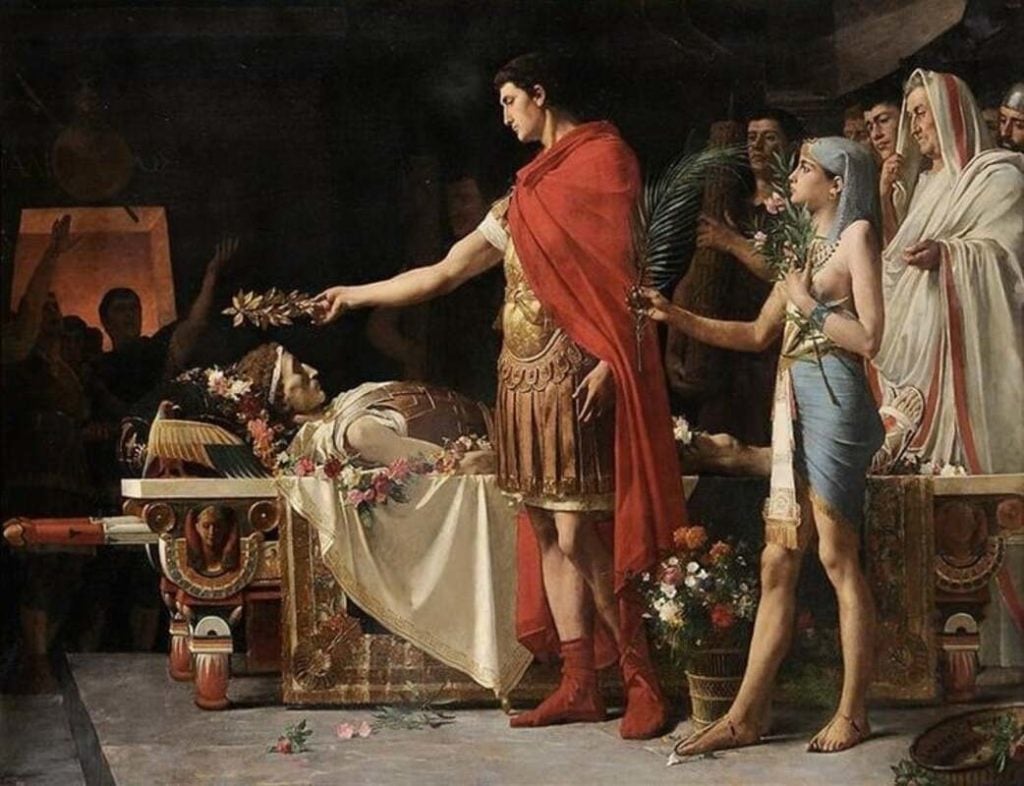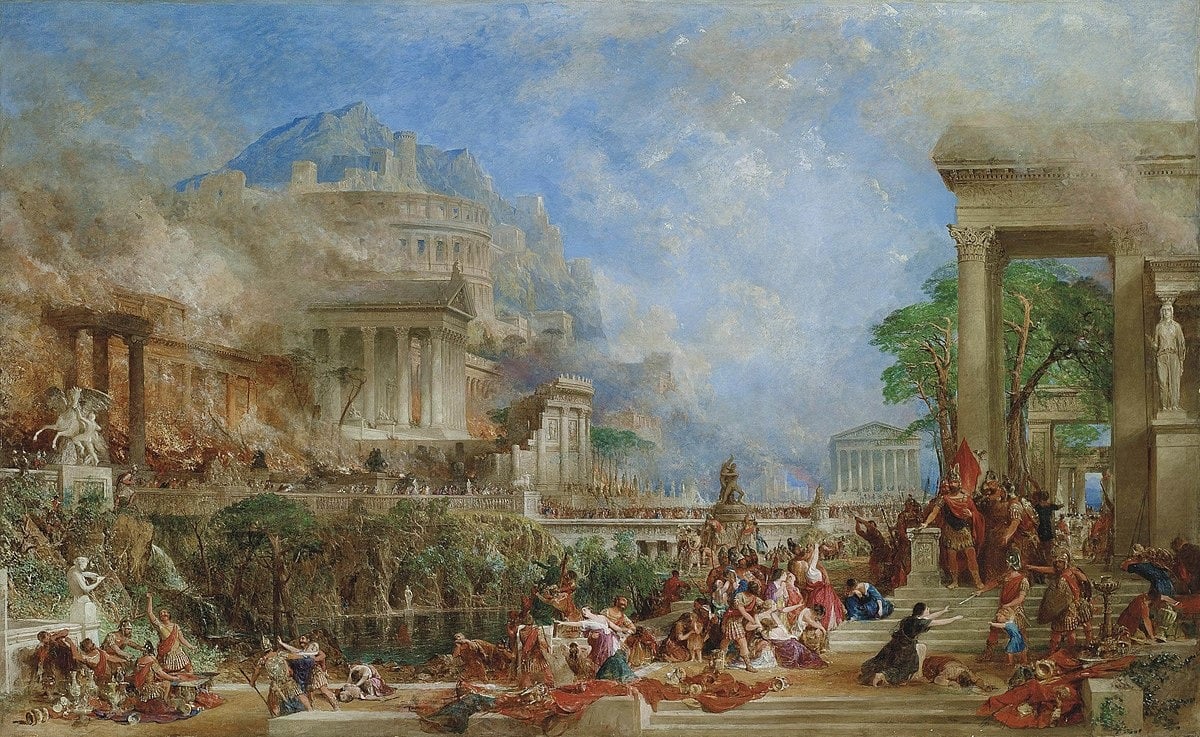
The Roman conquest of Greece is an integral part of the long and rich history of this proud nation. However, people mostly focus on the periods before or after this crucial moment, neglecting the importance and long-lasting consequences of this event that changed both Greece and Rome forever.
The encounter between the formidable military might of Rome and the rich cultural heritage of Greece is a profoundly fascinating and historically intriguing narrative. The relationship between Greece and Rome is characterized by political and military confrontations, but also by resilience and mutual respect.
One of the most significant aspects of this relationship is that the period following the Roman conquest and leading up to the complete integration of the Greek world into the emerging empire did not mark the demise of Greek culture. On the contrary, it marked something completely different. It was the rebirth of many Greek traditions that would affect and influence Rome deeply. Philosophy, art, and governance under Roman rule would change dramatically due to Greece’s integration into this mighty empire, changing its future forever.
The story of Greece during the Roman era is a great example of how cultures can preserve their core elements and values and even thrive under someone else’s rule. This important chapter in European history clearly shows that the relationship between conquerors and conquerors doesn’t always have to be defined by hatred and destruction. Yes, the Greeks resisted and the Romans conquered. However, the result of this was far from simple.

The impact of the Roman conquest on Greek city-states
The journey from the independence of the Greek city-states to the region becoming a mere Roman province shook the ancient world with profound consequences for the generations to come.
The military campaigns of the Romans reached their peak with the destruction of one of Greece’s most important cities: Corinth. This catastrophic event took place in 146 BC and was a milestone. It was then that the political freedom of Greek city-states ended forever.
Nonetheless, this significant event was not like any other of the hundreds of conquests that had already taken place in the Greek world. It was also not a simple case of subjugation to the strongest.
In places such as Athens and Sparta, the beacons of Greek independence until then, a new form of governance emerged. It was a mixture of Roman imperial needs and the local traditions of the Greek populations. Rather than suffocating Greek culture, this unique arrangement helped it to adapt. It led to a distinctive combination of traditional Greek practices and the benefits of life in the strongest empire of Europe and beyond. Such a unique blend showed how cultures can adapt to change while keeping their spirit alive.
Cultural exchange between Greece and Rome
Undoubtedly, the Roman era was a time of great cultural blending between Greek and Roman societies. The Romans loved and admired Greek art, philosophy, and education. It was the fundamental reason for a significant cultural import from Greece to Rome.
Greek scholars and artists were celebrated in wealthy Roman homes, and Greek philosophical works became essential in Roman education. In the meantime, many Roman architectural works began appearing in Greece, incorporating unique Greek styles. Another example of cultural exchange between the two is that philosophers, such as Epictetus, who followed Stoicism, which instructs its followers on how to cultivate self-control in order to overcome negative feelings, show the lengths of the exchange of ideas during this time.

Economic growth and urban revival under Roman Greece
Roman rule in Greece brought major economic changes to the Greek world. The Pax Romana, the period of peace and stability during Roman rule, opened up new trade routes and commerce opportunities for the Greeks.
Many Greek cities flourished, as they received increased investment from Roman authorities, who paid particular emphasis on infrastructure. Cities like Corinth, which had been almost totally destroyed during the Roman conquest, as well as Athens, saw new roads, sophisticated aqueducts, and buildings being constructed. The new infrastructure effectively mixed Roman engineering with Greek art. This era was meant to become a time of prosperity under Roman rule. It created a new urban and cultural reality that helped many Greek cities revive and thrive under the umbrella of the Roman Empire.
Christianity’s emergence in Greece during Roman times
Another major change in Greece during the Roman era was the rapid spread of Christianity that changed the ancient world profoundly. The travels of Apostle Paul across the Greek mainland and many of its islands led to the establishment of early Christian communities, which were among the first in the world. These journeys, according to details in the Acts of the Apostles, underline the crucial role of Greece in early Christianity.
The growth of this new religion within the confines of a purely pagan empire introduced a new dimension to Greek spiritual life, too. It was in Greece that the stage for Christianity’s rise was first established. The rapid growth of Christian communities in Greece would soon become a fundamental part of colossal changes that were about to engulf the religious life of the empire.
Consequences of Roman rule in Greek history
As we look back at the Roman era in Greece, we see its lasting impact on the identity of the Greeks, their cultural heritage, and history as a whole. The legacy of Roman rule in Greece includes important aspects that allowed Greece to be the nation we know it to be today. It helped preserve Greek traditions along with introducing Roman innovations.
This period blended Greek and Roman elements in a unique way. It prepared the ground for the future of Greek history, affecting the Byzantine Empire and modern Greek identity forever. The Roman period in Greece also shows the complications behind centuries of evolution of a nation. It highlights how strong cultural exchanges can be in shaping the identity of a nation and how important civilizations can deeply influence each other.
